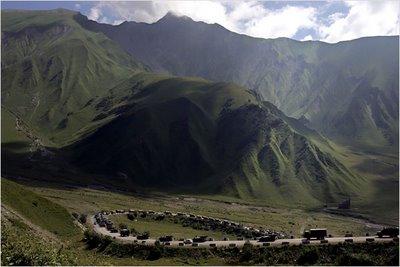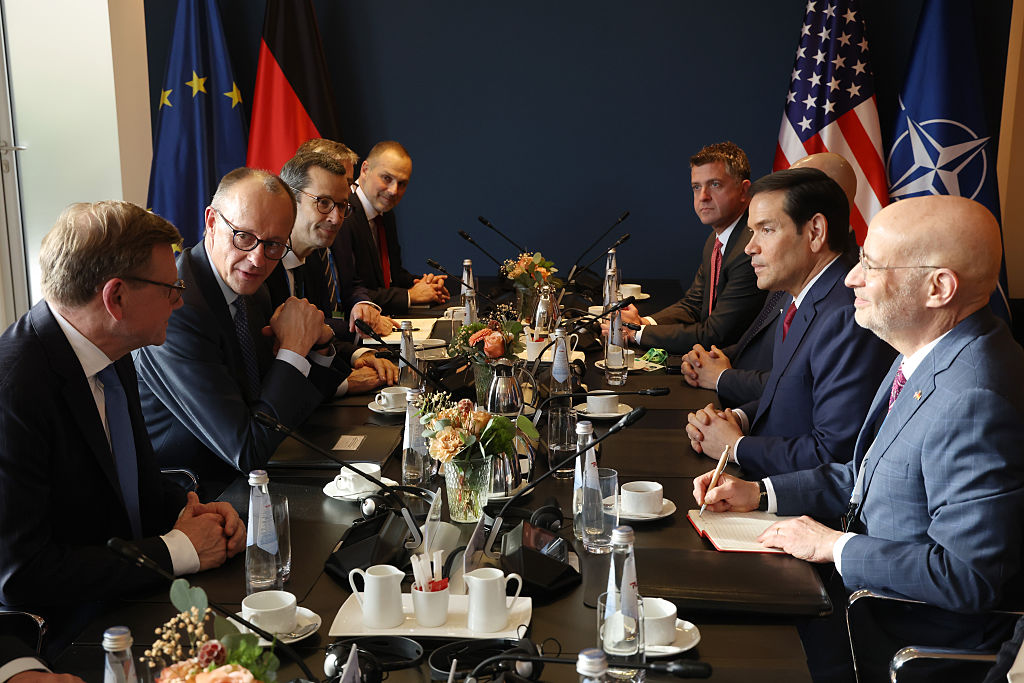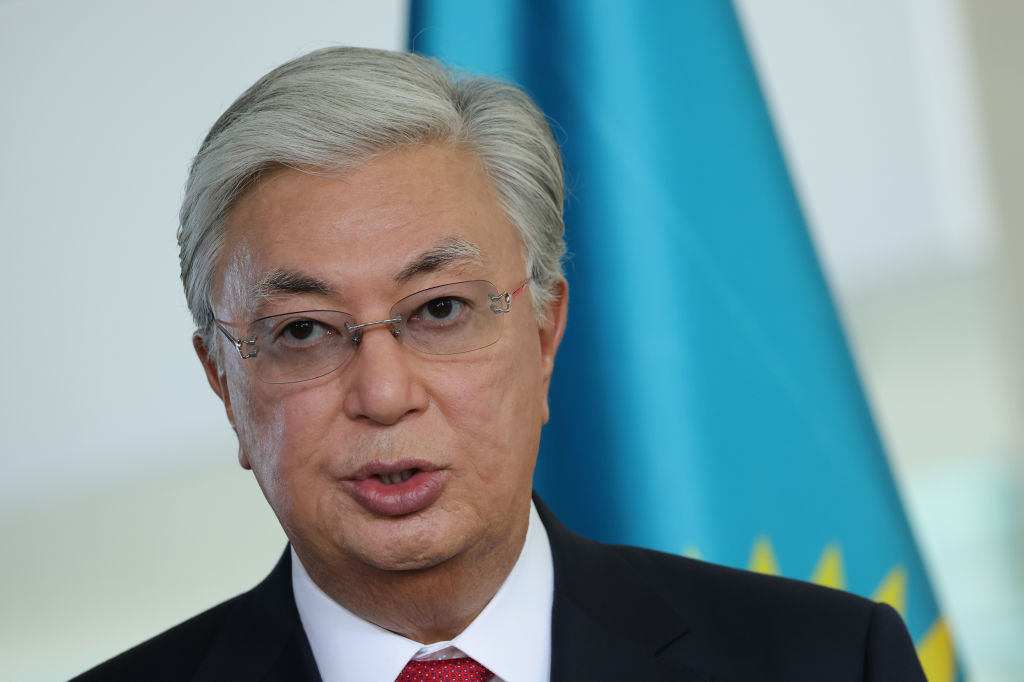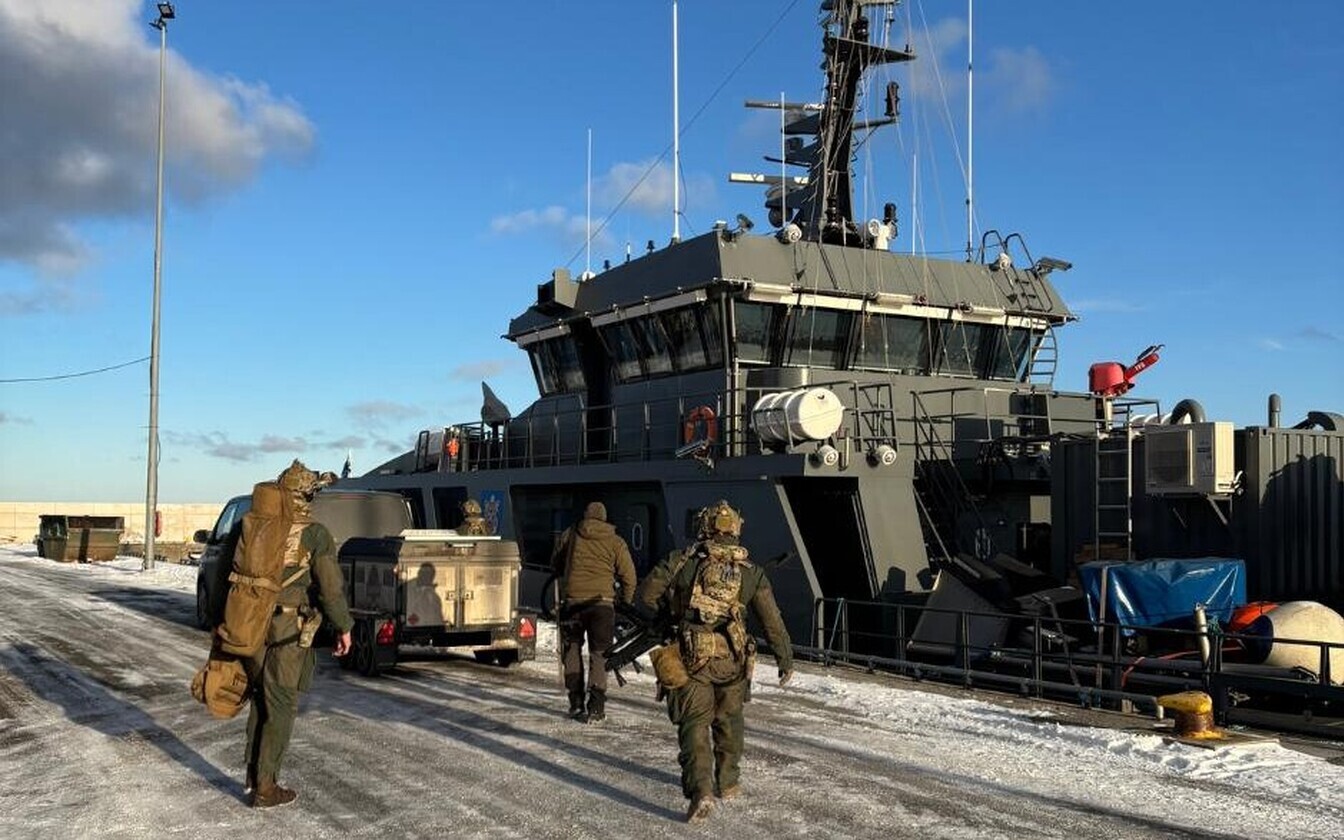
Russian Military Chief Accuses Georgia of Preparing Aggression
Russian Military Chief Accuses Georgia of Preparing Aggression
The top Russian military commander, the Chief of the General Staff and First Deputy Defense Minister Army-General Nikolai Makarov during the Paris air show this week said: "Georgia is saber-rattling and preparing weapons to resolve its territorial problems by any means." Makarov accused NATO of supporting Georgian aggressive intentions and E.U. observers of ignoring Georgian rearmament and war preparations. Makarov stated that the Russian army and the FSB Border Guards in Abkhazia and South Ossetia are preparing together with local forces and forming new military infrastructure. He confirmed that the defense ministry will permanently station "somewhat less combat troops in Abkhazia and South Ossetia" than the previously announced 3,700 soldiers in each region (RIA Novosti, June 17).
If Moscow were indeed anticipating a possible new Georgian attack, it would have been logical to place forces in forward positions to prevent a sudden assault. But if Russia itself is preparing major military action, using the accusations of Georgian aggression as a pretext, it makes practical sense not to spend resources creating large permanent military bases in Abkhazia and South Ossetia. It is much more expedient when the time for action arrives to move combat troops from permanent bases within Russia.
This month the Russian military will stage massive exercises in the North Caucasus, "Kavkaz-2009." According to the defense ministry’s official spokesman Colonel Aleksandr Drobyshevskiy the exercises will involve 8,500 soldiers, 200 tanks, 450 armored combat vehicles and 250 guns and last from June 29 to July 6. General Makarov will be directly in command. The official aim of "Kavkaz-2009" is to prepare to counter terrorists (www.mil.ru, June 11). Makarov previously told the press that "Kavkaz-2009" will be held from June 29 to July 10, and that it will be "a large-scale exercise," involving "all the brigades of the North Caucasia military district, the Black Sea Fleet and Caspian Flotilla marines brigades," as well as troops from other districts (RIA Novosti, June 5). This would seem to indicate that much more than 8,500 men will be involved. It is also unprecedented in Russian military tradition for the Chief of the General Staff to be directly in command of a routine regional exercise aimed at countering terrorism.
The exercises "Kavkaz-2008" held in July 2008 directly preceded the Russian invasion of Georgia in August. Officially, some 8,000 soldiers were involved in those exercises, but according to General Yuri Netkachev the number of troops "was officially underestimated" (Nezavisimaya Gazeta, July 18, 2008). In fact, tens of thousands of soldiers and thousands of pieces of heavy equipment were deployed in 2008 under the cover of "Kavkaz-2008" and were later used in the invasion of Georgia. There has been speculation in the Russian media that since the present Georgian regime of President Mikheil Saakashvili "is a terrorist organization" it would be logical to use the "Kavkaz-2009" antiterrorist troop concentration against it (www.segodnia.ru, June 17).
The ominous military preparations come on top of a complete diplomatic deadlock. Russia has used its veto within the OSCE and the U.N. Security Council to terminate the U.N. observer mission in Abkhazia and the OSCE mission in South Ossetia (EDM June 12, 17). Russian forces in Armenia are cut off from Russia, with no land link and the existing military transit arrangement with Georgia has not worked since August 2008. This is strategically intolerable, but President Dmitry Medvedev has once again stated that Russia will not hold any negotiations with the present regime in Tbilisi, but "may deal with a new leadership that will begin friendly discussions with neighboring Russia, South Ossetia and Abkhazia" (RIA Novosti, June 15).
The most dangerous period within which a new full-scale war with Georgia might occur will be from July 10 until after President Barack Obama visits Moscow, while the invasion forces are already deployed and poised for action, under the cover of "Kavkaz-2009." If Russian forces go into action, their objectives will be decisive.
Russian Strategic objectives:
1. Regime change and the forceful demilitarization of Georgia, fully dismantling and disarming the regime-loyal Georgian army, border guards and special police forces.
2. Establishing a secure land corridor linking Russia to its strategically important military base in Armenia.
3. Transforming Georgia into a loose confederation of its many semi-independent regions with their regional king-pins, with a weak central government and without any national military-security forces. Russian military forces will be permanently stationed within the Georgian confederation, ensuring influence, control of energy supply corridors to the Caspian and Central Asia, and ending the country’s aspirations to join NATO.
Operational objectives:
1. To engage and fully decimate the most capable Georgian government forces (artillery and special forces, including police special forces) in decisive battles.
2. To isolate Georgia from any possible external aid by taking under control its ports, major roads and airfields. One of the prime military targets of any future campaign could be the cluster of airfields and airstrips east of Tbilisi (Vaziani).
3. When the regular Georgian army, police and security forces are smashed, the existing political internal tensions could precipitate the disintegration of the present unified Georgian state. The international community may eventually leave Russia to manage the ensuing mess.
With its present array of weapons, training and capabilities, the Georgian forces do not appear sufficient to deter Russia. The international community is doing almost nothing, apparently hoping that marginalizing Georgia and charming Russia is the best possible policy. The U.S. assistant secretary of state for European and Eurasian affairs Philip H. Gordon has confirmed that the U.S. will not provide Georgia with any defensive or other weapons (RIA Novosti, June 9). This development has been eagerly awaited in Moscow.


